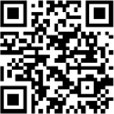Before climate change and conflict took hold, nomadic farmers in Burkina Faso would study natural phenomena to predict rainfall. They would send out spotters to travel ahead of the group, looking for water and pastures.
But their way of life has come under threat in recent years.
Pastoralist advisor Honoré Zidouemba explains the scale of the problem: “With the impact of climate change, traditional methods are becoming less and less reliable, and insecurity in the Sahel means reconnaissance trips are costly, risky, and take place in an uncertain context.”
“Allowing herdsmen and farmers with livestock to access real-time data on ecological parameters related to animal husbandry is a real revolution.”
Moumouni Ouédraogo, technical advisor to the Regional Sahel Pastoralism Support Project
Satellite data distributed through a mobile phone app is enabling herdsmen to plan their movement, save time and money, and, as a result, increase their productivity, says Zidouemba, the coordinator for MODHEM (Mobile Data for Moving Herd Management and better incomes) project at SNV Burkina Faso.
Farmer Marc Tamini is based in Ouarkoye, 294km from Burkina Faso’s capital Ouagadougou. Since using the app, called Garbal, he no longer worries about whether it is going to rain or not. And he sows crops only once he knows the time is right.
“I first used the Garbal platform when I wanted to check if I could still sow cotton from the end of last July,” says Tamini. He was able to access information about how long the rains were expected to last and, crucially, about how long it would take cotton plants to reach maturity.
Satellites show the way
Garbal gathers satellite images and data and analyses them to produce information for livestock farmers, and transhumant pastoralists — those who move livestock between summer and winter locations).
The information includes water points, rainfall and pockets of drought, identification and analysis of pastures, as well as pinpointing pastoral infrastructure, such as livestock markets, vaccination parks and veterinary stations.
The service is available for subscribers to the telecommunications operator Orange Burkina Faso, who can access a call centre or receive text messages in French or local languages. A call costs 30 CFA francs (US$0.051) per minute.
The MODHEM project behind the app brings together a number of bodies, namely the Ministry of Animal and Halieutic Resources, SNV Netherlands Development Organisation, Orange Burkina Faso, the AGRHYMET Centre (for its weather stations) and Satelligence (for satellite images).
Hamado Ouédraogo, general director of pastoral development and spaces at Burkina Faso’s Ministry of Animal and Halieutic Resources, hails the app’s ability to provide up-to-date information. “Farmers — including those with livestock — and herdsmen need reliable information to underpin their activities,” he says. “Work is done upstream to regularly update the technical and field data that is made available on the platform, to avoid providing users with outdated information.”
Ouédraogo says the next step is to ensure wider access. “All families now have access to a telephone, so the challenge is to ensure everyone with livestock knows about this platform,” he says. “Farmers and herdsmen have made it clear that they are interested in this service.”
Avoiding conflict zones
Moussa Diallo, a herdsman in Fada N’Gourma, eastern Burkina Faso, regularly uses Garbal. He tells SciDev.Net that, among other things, this system helps him to determine which routes to take to avoid conflict zones.
“There is no digital service that is more attuned to us than this system,” he says. “We are really satisfied, because the data we receive are usually consistent.” Jérôme Thiombiano, who is a member of the Pastoralism Communication Network (RECOPA) for the eastern region, notes that the satellite data provided by Garbal has allowed the more than 1000 members of the network to “avoid conflict while accessing food and drink for their livestock and also to choose the best destinations for transhumance”.
Programme statistics reveal that agricultural and pastoral professional organisations have connected with more than 65,000 farmers and herdsmen regarding the scheme, and 43,000 calls have been logged.
Zidouemba says 91 per cent of callers say they are very satisfied with the quality of the information provided by the Garbal service.
Moumouni Ouédraogo, technical advisor to the Regional Sahel Pastoralism Support Project (PRAPS) says the technology will change farmers’ lives. “Allowing herdsmen and farmers with livestock to access real-time data on ecological parameters related to animal husbandry is a real revolution,” he says.
Send your message to us:
Post time: Oct-04-2020

